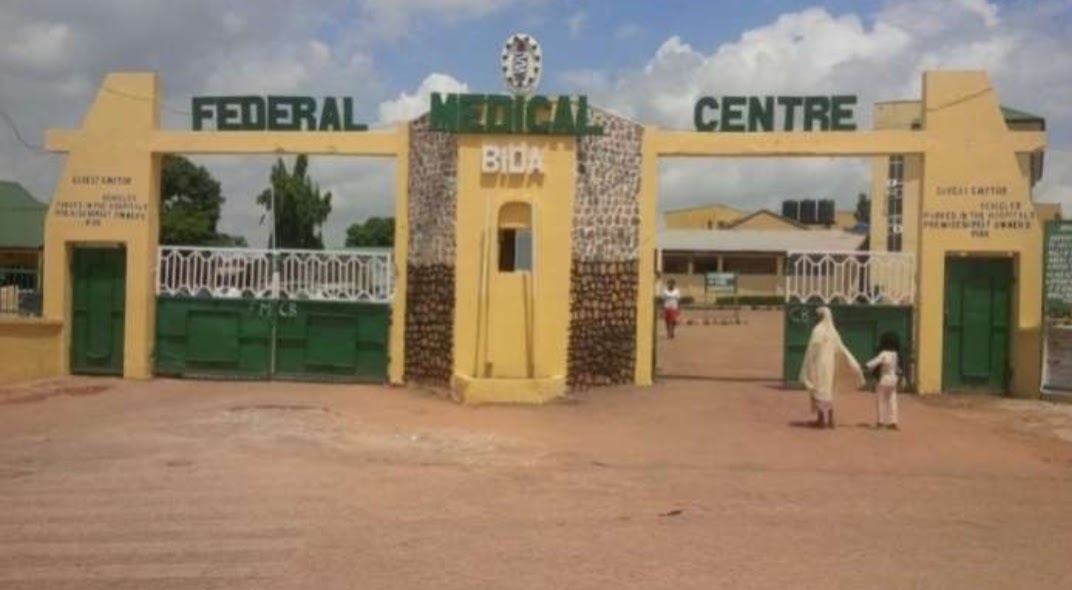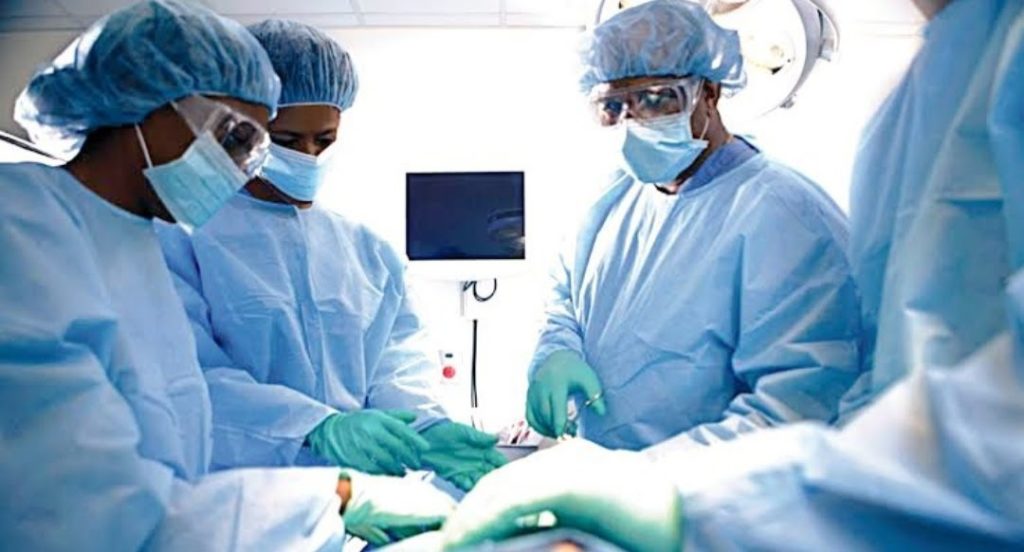The Nigerian Doctor (4): ‘We Saved Mother, Baby, 10 Minutes To Strike Action’
It was 7:50 a.m. WAT and the doctors' strike action was to start at 8 a.m. when the patient was brought in. They had to make a choice.

Ten minutes before members of the National Association of Resident Doctors (NARD) embarked on an indefinite strike, on Monday, Aug. 2, 2021, a woman was rushed to the Federal Medical Centre in Bida, Niger State in North-central Nigeria, for urgent medical attention.
It was a case of abruptio placentae (placenta abruption) which led to heavy bleeding. The Doctors who were already prepared for an indefinite industrial action agreed to save the dying patient.
Abruptio placentae is a serious pregnancy complication in which the placenta detaches from the inner wall of the womb before delivery. The condition can deprive the baby of oxygen and nutrients.
Without prompt medical treatment, a severe case may lead to the death of both mother and foetus. Moved by the woman’s situation, the doctors at the hospital rushed her to the theatre for a surgical operation and successfully resuscitated the patient.
“It is sad that the only thing the government understands is industrial action and this is not good for our patients,” a medical practitioner, Alfa Yusuf, tells HumAngle.

Yusuf is an obstetrician and president of resident doctors at FMC, Bida. He is one of many medical professionals who are not happy with the current state of the Nigerian health sector yet continue to turn down international opportunities.
“We were able to save her and the baby because doctors care. The strike was supposed to start at 8 a.m. and the woman came bleeding around 7:50 a.m. Of course, we aren’t robots. We had to take action to resuscitate her. She survived and the baby did too,” he narrates.
‘She would have died’
“We were able to help because she came before the strike began. The workforce of the health sector is the resident doctors and everyone knows that. If the woman was brought later than that, we would have lost her.”
Yusuf has over five years experience working at the department of obstetric and gynecology at FMC. He is not happy that authorities did not reach out to the union on the way forward, instead they are victimising them with “no work, no pay.”
He says: “it’s sad that we find ourselves in this situation where people who are supposed to put the interests of the public at heart are not providing necessary basic facilities.”
Lack of facilities affecting healthcare
Yusuf told HumAngle that unavailability of facilities also contribute to doctors’ pain and it makes their work more difficult.
“We lost one of our members due to lack of facilities in hospitals. A doctor collapsed and there was no defibrillator,” he says. “It was so painful. This is just an example of a lot more. We don’t have what it takes to help our patients,” he continues.

Defibrillator is an apparatus used to control heart fibrillation by application of an electric current to the chest wall or heart.
“There are some situations where you have the knowledge and all that it takes to help patients, but the unavailability of facilities makes us handicapped. Welfarism is important and we have people that depend on us.”
Amidst all of these, Yusuf said he is not considering leaving the country. “If we all leave, who will take care of our home? We have to make the health system our own. This residency training is important and we would not want the healthcare system to collapse. We have been on strike for six weeks and the government is doing nothing and patients are dying silently.”
Support Our Journalism
There are millions of ordinary people affected by conflict in Africa whose stories are missing in the mainstream media. HumAngle is determined to tell those challenging and under-reported stories, hoping that the people impacted by these conflicts will find the safety and security they deserve.
To ensure that we continue to provide public service coverage, we have a small favour to ask you. We want you to be part of our journalistic endeavour by contributing a token to us.
Your donation will further promote a robust, free, and independent media.
Donate HereStay Closer To The Stories That Matter




